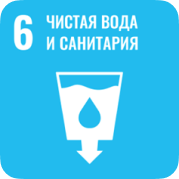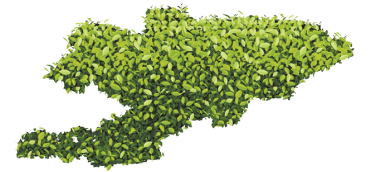Wastewater treatment plants play an important role in the “global” struggle to “save the environment” in several key ways
Prevention of water pollution
Wastewater treatment plants remove pollutants from wastewater before it enters natural bodies of water. This helps prevent pollution of rivers, lakes, seas and oceans, saving ecosystems and providing clean drinking water for people and animals.
Biodiversity conservation
Water pollution threatens biodiversity. Treatment plants reduce toxins in water bodies, preserving fish, aquatic plants and other species that need a clean environment, thereby maintaining ecological balance.

Disease prevention
Uncontrolled water pollution can spread infectious diseases to humans and animals. Wastewater treatment plants help improve sanitation by preventing the development of diseases such as cholera, dysentery and hepatitis.
Supporting sustainable development
Treatment plants improve the quality of life and contribute to the socio-economic development of regions. Purified water improves sanitation, tourism and agriculture, the well-being of the population and the strengthening of local economies.
Measures to conserve “water” resources in the world
Global level: UN Sustainable Development Goals (SDGs)
A set of 17 interconnected goals developed in 2015 by the UN General Assembly as a “blueprint for achieving a better and more sustainable future for all”. These goals were called the “2030 Agenda” in a General Assembly resolution. The Sustainable Development Goals call for action by all countries to improve well-being and protect the planet. This includes eliminating poverty, promoting economic growth and addressing problems in education, health, social protection, employment, as well as combating climate change and protecting the environment.
Goal #6 - Clean water and sanitation. Clean water is vital. But more than 40% of people suffer from water shortages, and millions die due to diseases caused by poor water and sanitation. This worsens economic and social conditions, leading to hunger, poverty and educational problems. The problem is exacerbated by population growth and inefficient use of water resources. The solution requires improving infrastructure, raising awareness and developing innovative technologies for better water management. This should be available to everyone.

Country level
In the Kyrgyz Republic, the understanding of the green economy is defined as an economy that leads to improved human well-being and social justice while significantly reducing risks to the environment, preserving and multiplying natural capital, efficiently utilizing resources and promoting the conservation of the country's natural ecosystems.

Our country closely cooperates with international organizations such as EBRD, IFC, ADB, GIZ, GEFF, etc. in stimulating green initiatives through various projects at both government and business levels.
Local level
Our company actively supports the principles of green initiatives, contributing to the preservation of the environment and water resources. Our wastewater treatment facilities play a particularly significant role in this process. Not only do they provide clean water and maintain sanitary conditions for the public, but they also protect biodiversity, helping to reduce the negative impact on the environment. In addition, our office and production facilities are built according to the principles of energy efficiency and green technology. We use solar power plants, heat pumps, wastewater treatment plants and other energy-efficient solutions to minimize our environmental impact and optimize our use of resources.



